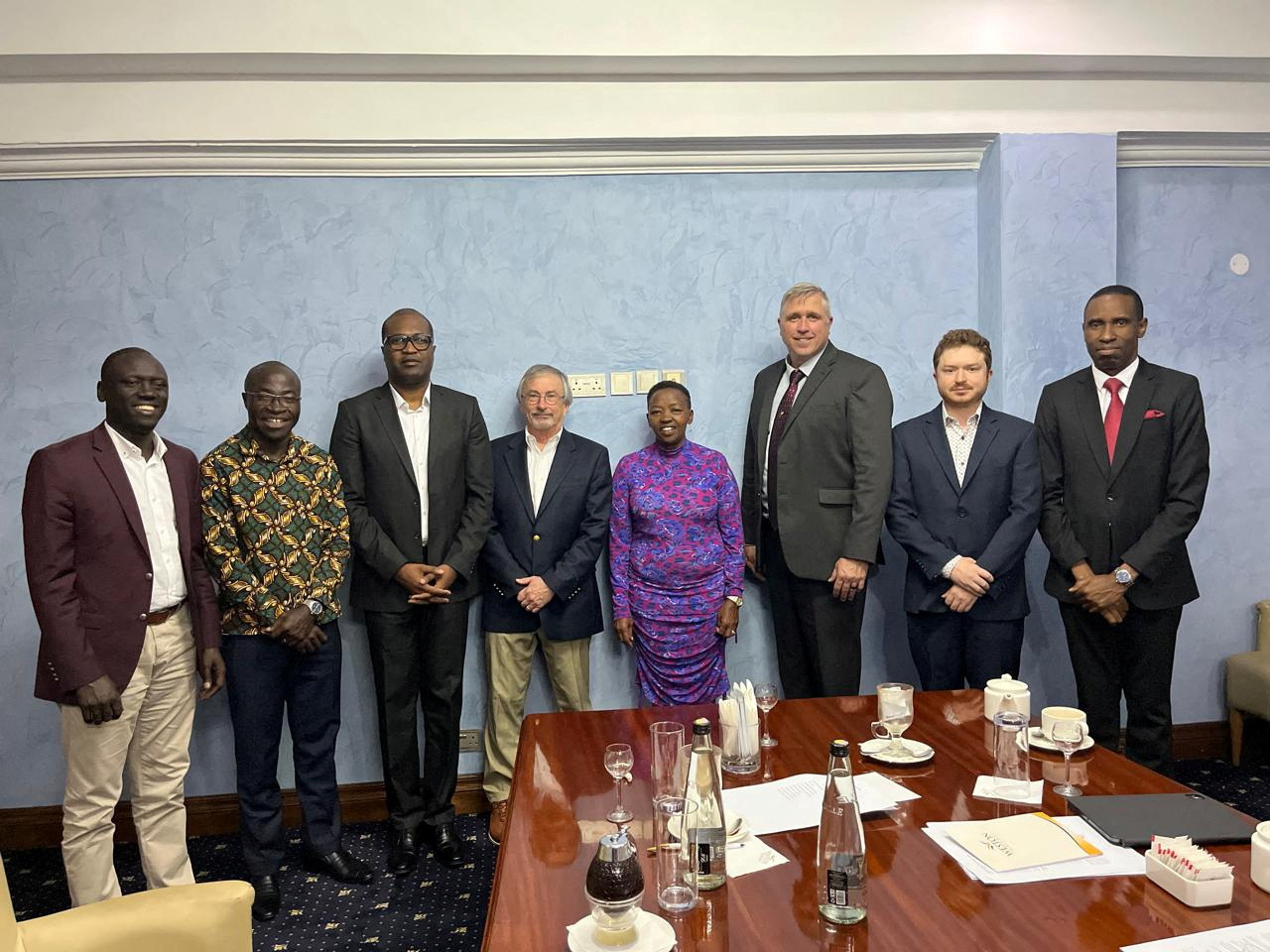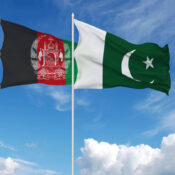
Act of faith: Kenya assigns Evangelical pastors to lead missionary work in Haiti
President William Ruto of Kenya has spoken with security authorities, international leaders, and political advisors regarding the high-profile anti-gang operation in the months preceding the deployment of Kenyan police troops to Haiti.
In addition, he sought the unconventional guidance of a group of nearby Christian evangelical pastors.
Interviews with two of the pastors and three evangelical leaders in Haiti and America revealed that the pastors have recommended Ruto and acted as a liaison between Haitian communities and the president.
Requests for comment for this story were not answered by representatives for President Ruto or his spouse, Rachel.
In preparation for the deployment, which is scheduled to start later this month, the pastors have met with evangelical colleagues, government officials in the United States, and even Jimmy “Barbecue” Cherizier, the most infamous gang leader in Haiti.
“We think that God will use us as a tool to help,” stated Kenyan evangelical pastor Serge Musasilwa, who is involved in the project. Musasilwa, a sociologist by background, claimed to have experience resolving conflicts in his home Democratic Republic of the Congo as well as a number of other African nations.
Initiative participants said the linkages established with Haitian communities will assist the multinational force commanded by Kenya in avoiding the mistakes made by foreign interventions in Haiti in the past few decades.
In addition to failing to stabilize Haiti, those operations left behind a legacy of disease and violations of human rights, the most notorious of which was a cholera outbreak in 2010 that was allegedly started by Nepali U.N. forces.
A U.N.-appointed panel determined that the cholera epidemic that killed over 10,000 Haitians most likely started in a peacekeeper’s camp. The United Nations has not acknowledged legal liability.
“The Baptist Haiti Mission, which has collaborated with Kenyan pastors, has found that the more connected you are to the population, the more you can format the kind of intervention you’re going to lead,” stated Daniel Jean-Louis, its president.
“This is one of the reasons why all the previous missions failed.”
The United Nations claims that after a 13-year peacekeeping operation left Haiti in 2017, the country was largely stable. According to a U.N. peacekeeping spokesman, the operation has collaborated closely with community-based groups and civil society to lower violence and enhance local administration.
The Kenyan pastors’ approach has its detractors. The history of evangelicals in Haiti is complicated. While they have contributed heavily to humanitarian efforts, they have also come under fire for moral controversies, such as claims that some missionaries trafficked children following the devastating 2010 earthquake, and for encouraging intolerance of indigenous spiritual customs.
The outreach to gang leaders, according to Pierre Espérance, Executive Director of the National Human Rights Defense Network in Haiti, is an insult to the victims of these organizations, and Kenya should adhere to its security role.
“It’s not a question of the gospel (or) praying with gangs that will resolve problems,” he told Reuters.
“DIPLOMACY OF FAITH”
Ruto and his spouse openly display their religious beliefs. Through the First Lady’s “faith diplomacy” campaign, which enlists religious leaders to support social programs, they have included evangelical leaders in affairs of state.
Rachel Ruto disclosed that the team was working on a “spiritual solution” for Haiti when she stopped by a different event held in the same facility in March while attending a meeting with evangelical pastors at the Weston Hotel in Nairobi.
She stated, “We cannot allow our police to go to Haiti without prayer,” as seen in a video published by the Kenyan daily The Star.
President Ruto’s unwavering dedication to the mission is seen in the pastors’ tight involvement in Haiti policy, despite vociferous resistance from prominent Kenyans and numerous delays.
Because of the severity of the country’s humanitarian predicament and worries about ancient Vodou beliefs—which some regard as demonic—evangelicals have long been interested in Haiti. According to the United Nations, Haiti is the least developed nation in the Western Hemisphere. More than 1,500 individuals were slain by gangs in the first three months of this year.
According to Pete Inman, an evangelical businessman from the United States who is close to the Rutos, “I think that it’s an expression of their faith first and foremost.” In addition, he said, the mission had a strategic purpose since it strengthened ties with the United States, which provided the majority of the mission’s funding.
The president has mentioned in public speeches that Haiti’s African-descended populace owes him a moral duty.
After Ruto announced the mission, Inman said he put Musasilwa in touch with Fred Eppright, the head of the Haiti Baptist Mission’s U.S. branch.
Eppright and a few of his colleagues were invited to Nairobi in March by Musasilwa, who paid him a visit in Austin, Texas, towards the end of last year, according to the two men.
Over the course of four days, at the posh Weston Hotel, Jean-Louis, Eppright, and two other American evangelicals engaged in prayer and strategic planning with four Kenyan pastors. On the final day, Rachel Ruto joined them.
“It was a four-day deep dive into how they would do the involvement,” stated Eppright.
He added that a few days later, Rachel Ruto gave her husband a white paper that the group had written. According to Jean-Louis, the recommendations covered four areas: political leadership, humanitarian issues, law and order, and a spiritual component.
Rachel Ruto and three of the pastors went to Austin and Miami the following month, meeting with officials of the police departments, evangelicals, and the Haitian diaspora.
According to Jean-Louis, members of the Haitian diaspora submitted suggestions to President Ruto that addressed everything from the mission’s duration to its legal authority. Reuters was unable to ascertain if the president received their recommendations.
ESPRITUAL CONCERNS
The Kenyan pastors conducted a Zoom conversation with officials of the Haitian gangs, including Barbecue, a former police officer who claims to be the head of the biggest gang alliance known as Viv Ansanm, while they were in the United States.
The discussion was headed by Musasilwa. He stated that although he was unable to provide specifics, it gave him optimism that the dispute could be settled amicably.
“This guy might be a devil, but there is something that we can build on,” said Musasilwa.
Barbecue could not be reached by Reuters for comment.
Musasilwa reported having meetings with representatives of the US State Department. The State Department will not provide a statement.
Despite their emphasis on the tactical elements of the deployment, Musasilwa and Julius Suubi, another pastor, expressed their conviction that the root causes of Haiti’s issues were spiritual.
Government statistics show that roughly 2% of Haitians identify as Vodou practitioners, a religion that blends spirit worship with a monotheistic creed.
According to Kyrah Malika Daniels, an assistant professor of African American Studies at Emory University in Atlanta, a great number of people also follow Vodou customs in addition to other religions.
Kenyan pastors wrote a 134-page, 40-day prayer book and started a global prayer campaign for Haiti in March. The prayers on a few of the days are centered around Vodou, which they referred to using a different spelling.
“We ask You father to utterly destroy every Voodoo curse of death that we have,” says one.
All Categories
Tags
+13162306000
zoneyetu@yahoo.com


